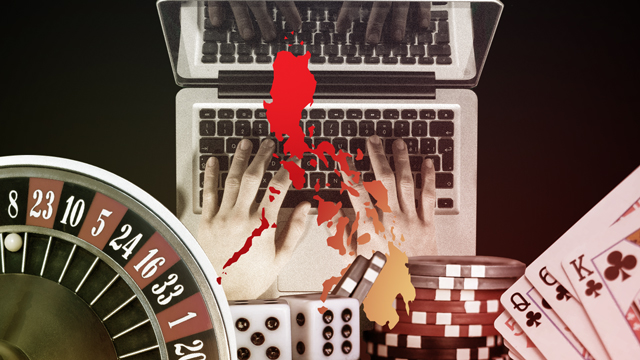Is Online Gambling Legal In Philippines
- In November 2020, casinos in the Philippines received permission to accept online bets to ease the financial pressures of the coronavirus. The key to understanding the legal landscape of online gaming in the Philippines is to draw a clear dividing line between the country as.
- Legal Online Gambling in the Philippines. The iGaming industry in the Philippines has been experiencing a steady rise, but its regulatory policies are in a rather unique situation. To put it simply, the respective jurisdictions illustrated above have the authority to license and regulate online casino operators.
- The law is strict when it comes to online gambling and Philippine offshore gaming online casinos that are licensed in the Philippines are not allowed to take bets from Filipino residents. But if these offshore online casinos are licensed in other jurisdictions, online gambling in.
- Yes, there are no statutes found in Philippine gambling laws that make it a crime for Filipino residents to play real money casino games online at legally sanctioned offshore online casinos. However, it is important to note that local residents are not allowed to play at.
The Philippines issues one Online Gambling license which covers all gaming operations, egaming service providers, network operators, affiliates, white-label operators and egaming software suppliers. With this Philippines Gambling License, online gaming companies can operate legally.

Thousands of Americans gamble online. But is online gambling legal? We break it down to show you what you can do, what you can't do, and what's still up in the air.

by Katherine Butler
updated September 03, 2020 · 2min read
The legality of online gambling is ever-changing. But one thing is constant: it makes a lot of money. Online gambling industry makes an estimated $1 billion dollars annually. This is a huge business, and a lot of people have cashed in on it. But it has led to some ambiguous legal issues, as the legality of online gambling is constantly being challenged.
There are differences in the legality of making bets, taking bets, facilitating payments to casinos, and advertising on websites. And there are constantly new legal challenges. So here is a breakdown of the law on online gambling.
Legal Forms of Gambling
There is no federal law against placing a wager online. So, you can legally place a bet online. However, a wager must not be placed on a site located in the United States. There is a small chance players might run afoul of state law, but there is little chance of prosecution. The only case cited where a person got into trouble with a state was in 2003. Jeffrey Trauman of North Dakota paid a $500 fine on over $100,000 of online sports bet winnings.
Sites that are set up outside of the United States are legal. Therefore, gambling on websites located in areas like Australia, the Caribbean, and Latin America is legal. Just be very clear that the site you are playing on is not based on U.S. soil.
Definitely Not Legal Forms of Gambling
It is never legal to gamble on a website based in the United States. Also, if you are planning to operate an online gambling site, stay outside of the United States. You must also deal only with casino and poker wagers (not sports bets) from people in the US. And you cannot take bets over the phone from people in the United States.

Accepting online gambling advertising is also illegal. If you are a small publisher, you are less likely to be prosecuted, but why risk it? As of early 2009, only large and mid-size publishers had faced prosecution. In 2007, the three big search engines (Google, Yahoo, and Microsoft) each paid a fine for accepting online gambling ads, but did not face criminal charges. Other publishers, such as Esquire Magazine, have been warned by the government not to take online gambling advertising.
Facilitating the transfer of funds to online casinos is also a bad idea. As of 2006, it became illegal for American banks to process transactions originating from or directed toward any online gambling operator. Because of this, several sites then refused to take bets from American players. But as the law seems difficult to enforce, it has not turned the tide completely for American players.

Still up in the Air
Advertisers who promote sports books in magazines and on billboards may or may not face prosecution. So far, sports books have never been scrutinized for advertising online. And online casinos, poker rooms, and sports books have never been prosecuted for buying ads.
Online casinos and operators still accept American players. And international financial parties have continued to process their transactions. The legality is always changing and there have been attempts to declare online wagering against the law, but for now, U.S. citizens who simply place bets online are in the clear.
I was recently talking to a friend in the UK who was considering retiring to the Philippines. I mentioned that I had lived there for a while and intended to retire in the Philippines in the future. However, he confided in me that he had one nagging doubt – he loved to gamble online almost every day, but he had heard that it was illegal in the Philippines.
I knew from experience that this couldn’t possibly be true, and my time running Gamblerspro.com told me there were many Filipinos searching for online gambling sites. What I found is that my expat friend was indeed incorrect. Gambling is legal in all forms in the Philippines, but that the reason for his confusion was several pointed statements made fairly recently by President Duterte.
So, what’s the deal with gambling in the Philippines? Is it legal? Is it safe? I’ll share what I found out here.
A Quick History of Gambling in the Philippines
When I first moved to the Philippines, one of the first things I noticed was the prevalence of gambling in the culture. Since I come from a part of the world where gambling is taboo, I was mildly shocked by how many casinos I encountered, how many people I saw wagering small sums of cash and cigarettes on card games and Mahjong, and by just how much cash changed hands at local cockfights.
It turns out that gambling has a long history in the Philippines. Antonio Pigafetta, who visited the Philippines with Ferdinand Magellan in the 16th century, made reference to how fond Filipinos are of gambling in his diaries. So, gambling goes back a long way on the archipelago.
Although the Spanish tried to stamp it out, even calling it a “consuming cancer” they clearly did not succeed, and gambling is alive and well in the Philippines today.
Yet, in recent times, President Duterte has taken a hardline stance on illegal online gambling operators. This was the source of my friend’s confusion. He mistakenly believed that Duterte had declared online gambling illegal, but as you’ll soon see, that’s not the case.
Is Gambling Legal in the Philippines?
All forms of gambling are legal and regulated in the Philippines. This includes casino games, sports betting, poker, and lotteries.
However, in order to operate a legal gambling enterprise, a license must be obtained from the appropriate government department.
So, which department is in charge? That depends on what sort of operation it is.
- Casino Games – These are regulated and licensed by PAGCOR, which is the Philippine Amusement and Gaming Corporation. This organization also regulates poker and bingo.
- Sports Betting – ICLG claims that PAGCOR regulates sports betting in the Philippines, while Wikipedia claims it falls under the purview of the Games and Amusement Board. This requires clarification, but either way, it’s clear that betting on sports is legal and regulated.
- Lotteries – Lotteries are regulated by PCSO – Philippine Charity Sweepstakes Office.
The above forms of gambling are all legal and regulated. Profits derived from them are spent on national development and welfare programs.
Several games of chance exist in the underground gambling market in the Philippines, including Jueteng, Masiao, and Last Two. These are numbers games which are played on the street all across the country. You won’t find them in legit casinos, though.
Online Gambling In the Philippines
So, it’s clear that most forms of gambling in the Philippines are legal with the exception of a few games. Why then had my friend thought otherwise?
It turns out that President Duterte has made a few flamboyant statements about gambling in the Philippines. He has stated that he would “suppress” the online gambling industry and, a statement translated from Tagalog to English he stated that:
“To hell with the contract [held by locally licensed operators], I told you I do not want gambling, period.”
While an outright ban has not happened, a major crackdown on illegal online gambling operators has, and several arrests and deportations have occurred.
Perhaps Duterte has realized that it’s better to effectively tax the many Philippines Overseas Gambling Operators (POGOs) rather than chase them out of the country? Since they contributed P3.13 billion to the national coffers in 2017, that’s probably a wise move.
Philippines Gambling – Summary
In conclusion, all forms of gambling are alive and well in the Philippines. Gambling generates vast sums of money in the economy, and one only has to visit any large or medium-sized city in the country to find a Casino Filipino or one of its rivals.
Online gambling is also legal. Despite Duterte’s threats to squash it, it’s thriving, and expats and locals alike can play casino games, bet on sports, and enjoy poker tournaments without fear of punishment.
Just don’t try to stream a live roulette game from your webcam without a POGO license. And to my friend, when you read this, go ahead and retire in the Philippines – you’ll love it, and nobody will jail you for playing cards or betting on the horses!